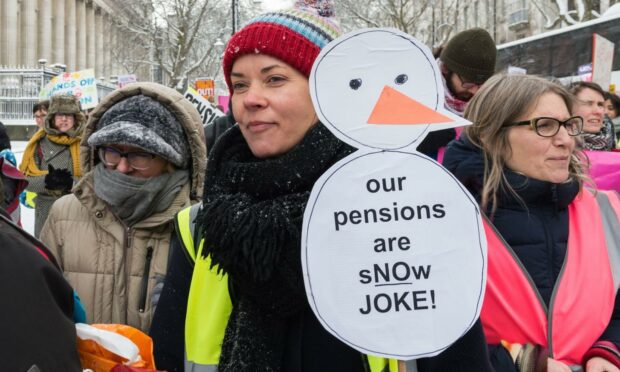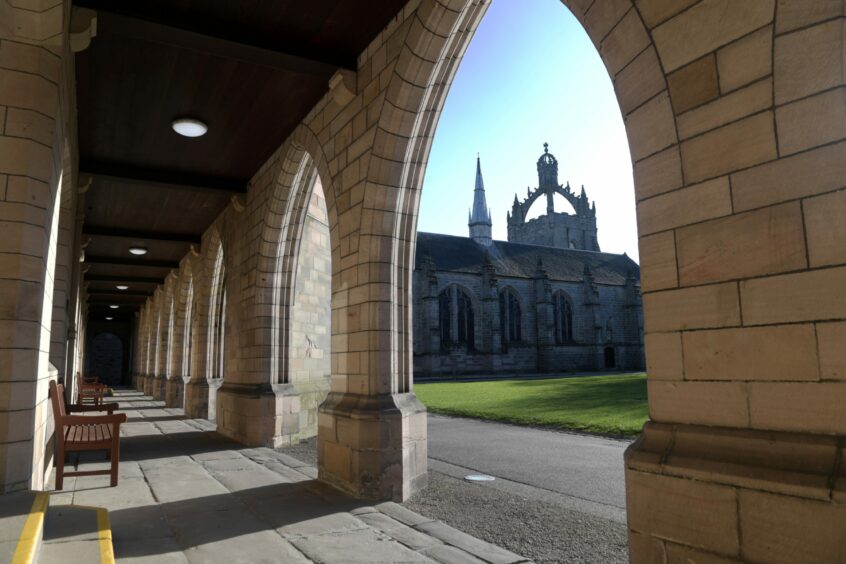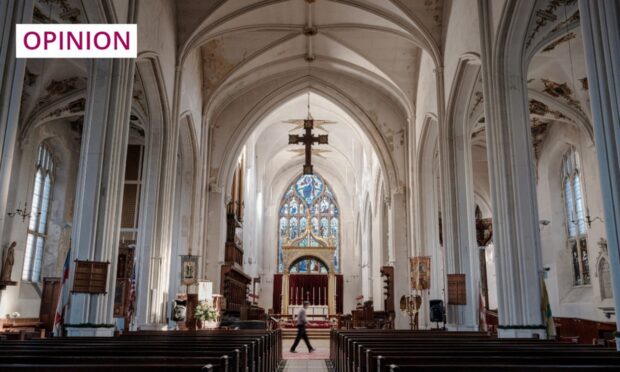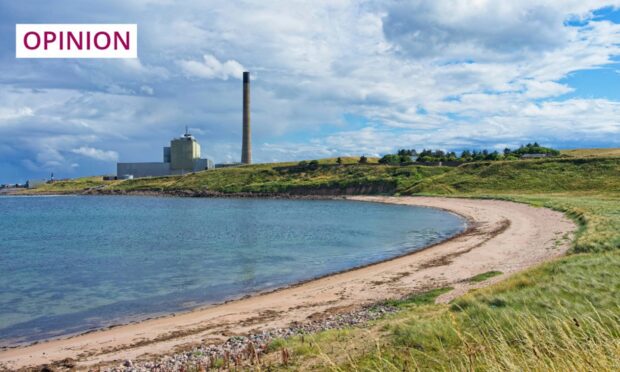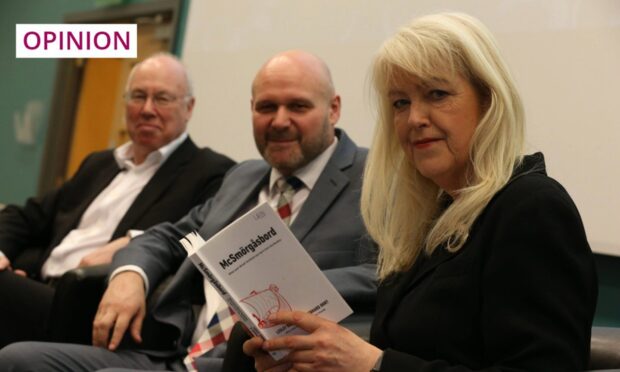This week, university employees in 10 universities across Scotland have joined 48 other universities around the UK in holding three days of strikes.
Lecturers, professors, researchers and professional services staff – such as library, student support and IT workers – are striking in two bitter disputes over pension cuts and pay and working conditions.
In Scotland, staff have walked out at the University of Dundee, and at St Andrews, Glasgow and Edinburgh universities, among others. No one wants to go on strike, and sacrificing three days’ pay in the run up to Christmas is grim. But our university sector is simply broken, and the staff so demoralised and devalued that they have been left with no other choice.
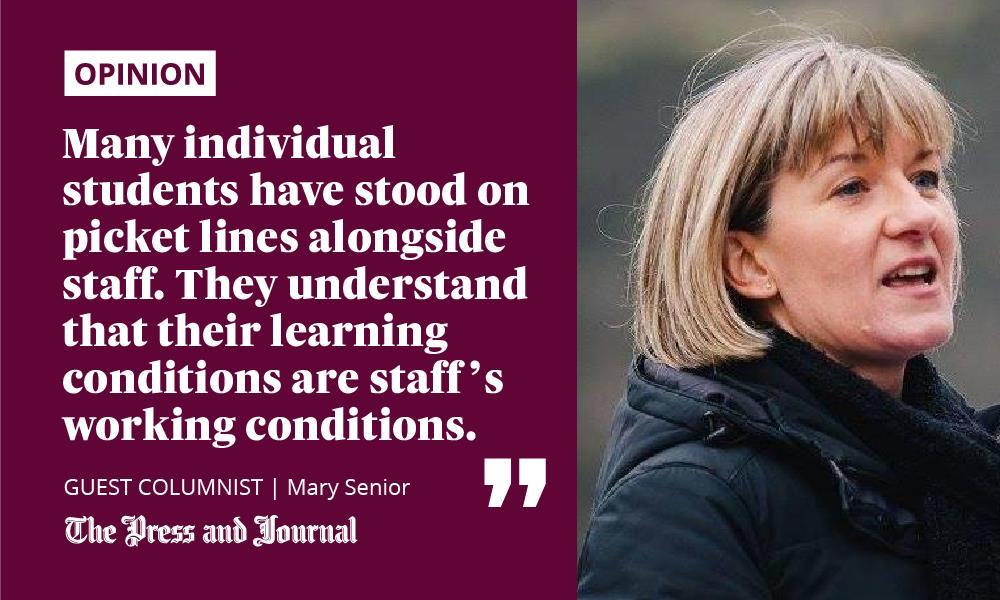 Workers are striking over cuts to their pension – cuts which mean that a typical member will lose 36% of their retirement income, receiving an annual pension which is thousands of pounds lower than expected. On top of this, staff have seen their pay lose value by more than 20% in real terms over the past 12 years.
Workers are striking over cuts to their pension – cuts which mean that a typical member will lose 36% of their retirement income, receiving an annual pension which is thousands of pounds lower than expected. On top of this, staff have seen their pay lose value by more than 20% in real terms over the past 12 years.
Pay has lost value at the point when workloads have spiralled to unsafe levels. The sector also sees deep salary inequality, with a gaping gender pay gap, as well as an ethnicity and disability pay gap for BAME and disabled staff.
Many university staff at the sharp end of exploitation
All too many people working in the university sector are on precarious and insecure casual contracts, and the union is calling for urgent action to address this. A third of all academics in universities are on fixed-term contracts and, in teaching roles, 41% of academics are paid hourly, often not knowing when and for how long they will have work. The only people in “ivory towers” in our universities are the principals and vice chancellors, with a large number of university staff at the sharp end of exploitative employment practices.
The union has consistently told employers that this situation is unsustainable. We cannot have a successful, world-leading university sector which is based on depressing staff pay, cutting pensions, and exploiting workers on casualised employment contracts, with unsafe workloads and unequal pay.
The University and College Union’s (UCU) disputes have been demanding university employers – Universities UK (UUK) in the pensions dispute, and the University and Colleges Employers Association (UCEA) in the pay and conditions dispute – come back to the negotiating tables.
We’re calling upon UUK to rescind the swingeing cuts to pensions, and for UCEA to address the year on year pay reductions, along with real action to tackle unsafe workloads, casualisation and pay inequality. So far, both employer bodies have sat on their hands.
Students have stood by staff
Strikes are, by their very nature, disruptive, and we recognise the difficulties faced by students. It has been heartening to see the strong support from students for their lecturers, librarians and administrators.
We’re calling upon employers to act now before further strikes ensue – to rescind the pension cuts, and do better on pay and addressing unjust working conditions
Support has come from the National Union of Students, along with student associations. Many individual students have stood on picket lines alongside staff. They understand that their learning conditions are our members’ working conditions.
Students, support the strike – 2 weeks’ prep, one hour lecture, my pay? £22.50 🤦♀️😱😖 #OneOfUsAllOfUs pic.twitter.com/2385CzQ1aj
— UCU Scotland (@UCUScotland) December 3, 2021
This week’s strikes have, yet again, evidenced the failings of the way our universities are being run. The ball is now in the employers’ court. They can prevent further industrial action, unrest, and disruption in the new year.
New ballots for strike action open at the University of Aberdeen, Abertay University, Strathclyde and a few others on December 6. UCU members at these universities have the chance to join the industrial action in 2022, unless resolutions are achieved.
We’re calling upon employers to act now before further strikes ensue – to rescind the pension cuts, and do better on pay and addressing unjust working conditions.
We all want to focus on delivering the best education, research and student support that we can. University principals must play their part and support staff to enable that to happen.
Mary Senior is the Scotland official at the University and College Union (UCU)
